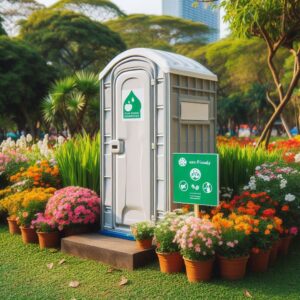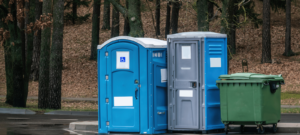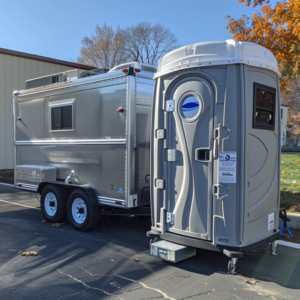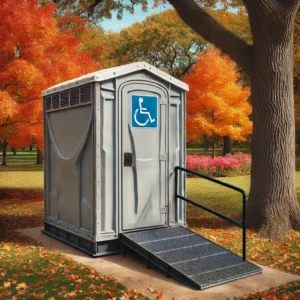Porta Potties vs. Composting Toilets: Which is the Better Option for Your Event?
One crucial consideration when planning an outdoor event is providing adequate sanitation facilities for your guests. This decision often boils down to choosing between porta potties and composting toilets. Each option has its own set of advantages and drawbacks, influencing factors such as environmental impact, convenience, and cost. In this article, we’ll delve into the pros and cons of porta potties vs. composting toilets, helping you determine the better option for your event.
Whether you’re organizing a festival, wedding, or large gathering, understanding the key differences between these two sanitation solutions can ensure a smoother, more eco-friendly experience for everyone involved.
Porta Potties vs. Composting Toilets
When considering outdoor sanitation options, two popular choices are Porta Potty or Composting Toilets, Each has its own advantages and ideal use cases.
Porta Potties are portable, chemical toilets commonly used at construction sites, outdoor events, and remote locations. These units are typically serviced by waste management companies that regularly empty and clean the tanks. Porta potties are convenient for short-term use and can accommodate large numbers of people. However, they rely on chemical treatments to manage waste and odor, which may not be environmentally friendly.
Composting Toilets, on the other hand, use a natural decomposition process to break down waste into compost. These systems are often found in eco-friendly homes, parks, and off-grid locations. Composting toilets do not require water or chemicals, making them a sustainable option. They do, however, require regular maintenance to manage the composting process effectively and ensure proper ventilation to prevent odors.
Porta Potties vs. Composting Toilets: Key Differences
- Environmental Impact: Composting toilets are more Eco-Friendly Toilets, using natural processes without chemicals.
- Maintenance: Porta potties require professional servicing while composting toilets need regular user maintenance.
- Usage Duration: Porta potties are suitable for short-term events, whereas composting toilets are ideal for long-term use.
- Cost: Initial costs for composting portable toilets may be higher, but they have lower long-term operating costs compared to the recurring service fees for porta potties.
Environmental Advantages of Porta Potties Over Composting Toilets
Porta potties which are more environment-friendly Toilets offer several environmental advantages over composting toilets, making them a preferable choice in various settings:
- Water Conservation: Porta potties require minimal water for flushing, if any, compared to composting toilets which often need water to maintain the composting process.
- Reduced Chemical Use: While chemicals are sometimes used in porta potties for odor control, modern formulations are environmentally safer and less harmful compared to the chemicals used in composting toilets for waste breakdown.
- Mobility and Flexibility: Porta potties are portable and can be moved easily to different locations, reducing the environmental impact associated with permanent installations required for composting toilets.
- Efficient Waste Management: Porta potties are designed for efficient waste collection and disposal, minimizing the potential for environmental contamination or leakage.
Porta potties, therefore, contribute positively to the environment by conserving water, reducing chemical usage, offering flexibility in deployment, and ensuring efficient waste management. These features make them a practical and environmentally friendly choice for temporary sanitation needs in various outdoor and event settings.
Cost Comparison: Which Option Fits Your Budget?
When planning outdoor events or managing temporary sites, choosing between porta potties and composting toilets involves a cost comparison that considers both immediate and long-term expenses. Porta potty rentals are generally the go-to option for short-term needs due to their low upfront cost. Porta Potty Rentals around me is straightforward, with prices, depending on location and the duration of the rental.
This cost includes delivery, maintenance, and removal services, making it a hassle-free solution for events, construction sites, and other temporary setups.
Composting toilets, on the other hand, present a higher initial investment, often costing several hundred to a few thousand dollars per unit. However, they offer significant savings over time, especially for long-term projects or permanent installations. Composting toilets do not require regular servicing or the frequent waste removal that porta potties do, reducing ongoing operational costs.
They are also environmentally friendly, converting waste into compost that can be safely returned to the soil, which can be an attractive feature for eco-conscious users.
Ultimately, the choice between porta potty rentals and composting toilets depends on the specific needs and duration of the project. While porta potties are cost-effective for short-term use, composting toilets can provide economical and sustainable benefits for long-term applications.
Ease of Use and Maintenance
Porta potties and composting toilets offer distinct advantages in terms of ease of use and maintenance. Porta potties are simple to set up and use, requiring minimal user interaction beyond basic hygiene practices.
Their maintenance involves regular servicing by a professional company, which includes cleaning, restocking supplies, and waste removal. This makes them convenient for short-term events or construction sites, where immediate and hassle-free sanitation solutions are needed.
Composting toilets, on the other hand, are designed for sustainable waste management, converting human waste into compost. They require a bit more user involvement, such as ensuring the proper balance of carbon-rich materials like sawdust to aid the composting process.
Maintenance includes periodic emptying of the compost bin and ensuring proper ventilation to manage odors. While the initial setup and ongoing care may be more intensive compared to porta potties, composting toilets offer long-term environmental benefits and are ideal for off-grid living or eco-friendly initiatives.
Guest Experience and Comfort
The guest experience and comfort of porta potties and composting toilets vary significantly. Porta potties are designed for functionality and basic comfort and are often used at large events or construction sites. They provide essential amenities like toilet paper and hand sanitizer, but they can be cramped and may develop unpleasant odors if not frequently serviced. The lack of running water and limited ventilation can affect overall guest satisfaction, especially during prolonged use.
Composting toilets, however, focus on a more sustainable and often more comfortable experience. These toilets are generally better ventilated, reducing odor issues. They are often equipped with a more spacious and aesthetically pleasing design, which can make guests feel more at ease. The composting process is odorless when managed correctly, providing a cleaner and more pleasant experience. Additionally, the eco-friendly aspect of composting toilets can appeal to environmentally conscious guests, enhancing their overall experience and comfort.
Space and Location Considerations
Space and location considerations for porta potties and composting toilets are crucial for their effective use. Porta potties are highly versatile and can be placed almost anywhere due to their compact, self-contained design. They are ideal for outdoor events, construction sites, and other temporary locations, requiring only a flat surface for stability. Their mobility allows for easy relocation as needs change, making them a flexible option for dynamic environments.
Composting toilets, on the other hand, require more careful planning regarding space and location. They need adequate ventilation to ensure proper functioning and odor control, which might involve installing vents or fans. Additionally, they require space for the composting bin and may need access to a power source if equipped with electrical components. These toilets are best suited for semi-permanent or permanent installations, such as in cabins, off-grid homes, or eco-friendly facilities, where sustainable waste management is a priority and space can be allocated accordingly.
Conclusion
When deciding between porta potties and composting toilets for your event, it ultimately boils down to balancing convenience with sustainability. Porta potties offer immediate sanitation solutions with easy setup and maintenance, ideal for shorter events where frequent cleaning is feasible. On the other hand, composting toilets champion environmental friendliness by converting waste into compost, suitable for longer events or eco-conscious gatherings. Both options cater to different needs: porta potties ensure quick access and cleanliness while composting toilets promote sustainable practices and reduce environmental impact.
Choosing between porta potties vs. composting toilets hinges on event duration, attendee comfort, and your commitment to sustainability goals. By evaluating these factors, event organizers can make an informed decision that aligns with their priorities, ensuring a successful and environmentally responsible gathering. Searching for porta potty rentals near me? Contact Us for a dependable service you can count on.





